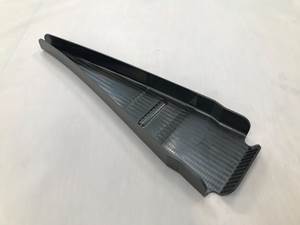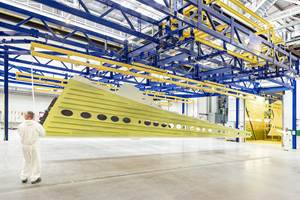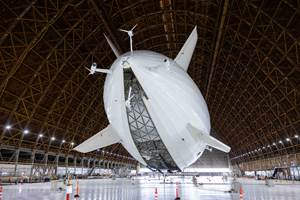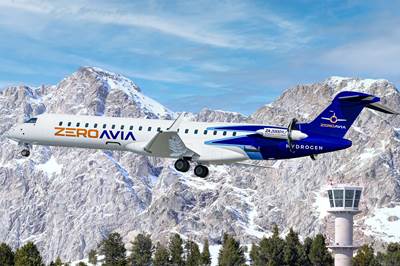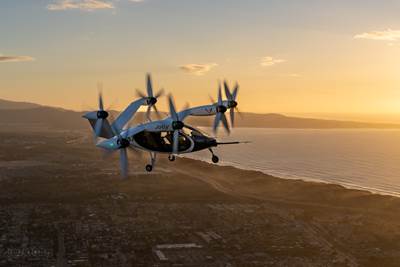EcoPulse demonstrator configuration is revealed in preparation for upcoming flights
Daher, Safran and Airbus cite recent milestones made with the composite hybrid-electric propulsion aircraft, progressing the project’s hybridization and decarbonization goals.
Yellow arrow points to the EcoPulse’s composite winglets, which have been enlarged from Daher’s TBM series. Photo Credit: Daher
EcoPulse, the wing-mounted, hybrid-electric distributed propulsion aircraft demonstrator being jointly developed by France-based Daher (Paris), Safran (Paris) and Airbus (Toulouse), made its first public appearance at the 2023 Paris Air Show, revealing its final external configuration. After successfully passing successfully first ground tests, the demonstrator will perform its first flight with hybrid-electric propulsion later this year.
The EcoPulse is based on Daher’s TBM 900-series airplanes, which are built in series production with approximately 25% composite materials. This includes winglets, landing gear doors, wing-to-fuselage fairing, etc. — elements that Daher personnel confirmed are retained on the EcoPulse demonstrator aircraft. It should also be noted that on the EcoPulse, the TBM 900-series aircraft winglets have been enlarged, while still accommodating integration of the wings’ electric motor thrusters on the demonstrator.
The demonstrator, supported by the French Civil Aviation Research Council) (CORAC) and co-funded by the French Civil Aviation Authority (DGAC) through France Relance and NextGeneration EU, is reported to be one of the major collaborative projects in France in the field of aviation decarbonization. EcoPulse aims to evaluate the operational advantages of integrating hybrid-electric distributed propulsion, with specific emphasis on CO2 emissions and noise level reduction. This disruptive propulsion architecture enables a single, independent electrical power source to provide power to several engines distributed throughout the aircraft. The demonstrator will also evaluate the overall energy efficiency of the onboard system, including high-voltage electrical propulsion with battery and turbogenerator, and control laws involved in such architecture.
So far, the demonstrator has amassed around 27 hours of flight time.
EcoPulse is equipped with six integrated electric thrusters or e-Propellers (supplied by Safran), distributed along the wings. Its propulsion system integrates two power sources: a turbogenerator, i.e, an electric generator driven by a gas turbine (supplied by Safran), and a battery pack (supplied by Airbus). At the heart of this architecture is a power distribution and rectifier unit, responsible for protecting the high-voltage network and for distributing the available electrical power, as well as high-voltage power harnesses (both provided by Safran).
Since the announcement of this collaboration between Daher, Airbus and Safran at the previous Paris Air Show in 2019, the demonstrator has successfully passed key milestones, leading to its maiden flight in 2022 with its conventional thermal engine (without electric system operational). The ground and flight tests conducted recently in 2023 validated its aerodynamics and systems configuration.
“Hybridization and electrification are key to the aerospace sector’s decarbonization journey,” Sabine Klauke, CTO at Airbus, says. “With EcoPulse, we learned a lot from developing the high-power battery pack entirely, from the monitoring system to the thermal runaway and short-circuit tests. Some of these key learnings are already applied in several of our demonstrators with the common ambition to lower emissions. We are now all eager to see this technology flying and continue to progress on our electrification roadmap.”
So far, the demonstrator has amassed around 27 hours of flight time with the electric propellers feathered. Flight tests of the hybrid-electric powertrain are due to begin later this summer. Daher’s CTO Pascal Laguerre says the company plans to “develop our future product roadmap [from this demonstrator project] and basically spec the hybrid aircraft we intend to produce by the end of our 5-year plan. We expect by the end of 2027 to be able to offer our first hybrid aircraft to the market.”
Related Content
ASCEND program update: Designing next-gen, high-rate auto and aerospace composites
GKN Aerospace, McLaren Automotive and U.K.-based partners share goals and progress aiming at high-rate, Industry 4.0-enabled, sustainable materials and processes.
Read MoreWelding is not bonding
Discussion of the issues in our understanding of thermoplastic composite welded structures and certification of the latest materials and welding technologies for future airframes.
Read MorePlant tour: Spirit AeroSystems, Belfast, Northern Ireland, U.K.
Purpose-built facility employs resin transfer infusion (RTI) and assembly technology to manufacture today’s composite A220 wings, and prepares for future new programs and production ramp-ups.
Read MoreNext-generation airship design enabled by modern composites
LTA Research’s proof-of-concept Pathfinder 1 modernizes a fully rigid airship design with a largely carbon fiber composite frame. R&D has already begun on higher volume, more automated manufacturing for the future.
Read MoreRead Next
ZeroAvia, MHIRJ assess retrofit approach for hydrogen-electric regional jets
The first phase of technical study confirms the feasibility of hydrogen-electric-powered CRJ aircraft.
Read MoreGKN Aerospace, Joby Aviation sign aerostructures agreement
GKN Aerospace will manufacture thermoplastic composite flight control surfaces for Joby’s all-electric, four-passenger, composites-intensive ride-sharing aircraft.
Read MoreVIDEO: High-volume processing for fiberglass components
Cannon Ergos, a company specializing in high-ton presses and equipment for composites fabrication and plastics processing, displayed automotive and industrial components at CAMX 2024.
Read More

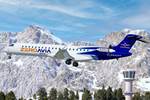
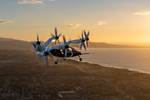

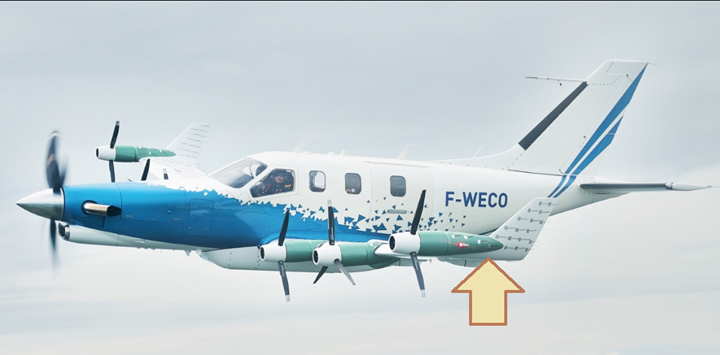











.jpg;maxWidth=300;quality=90)



